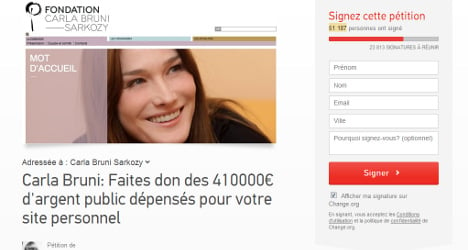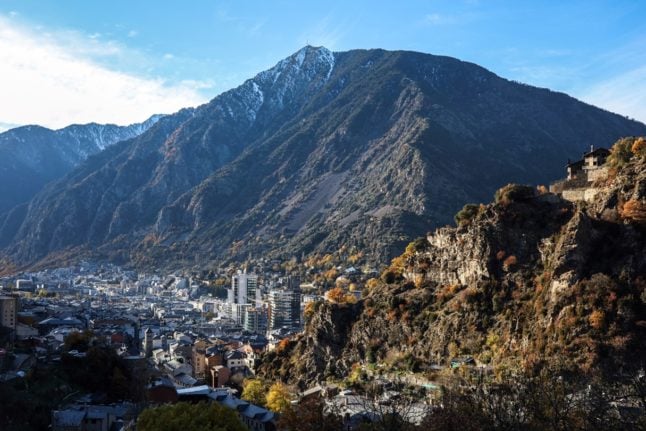The year 2013 has truly been an annus horribilis for the Bruni-Sarkozy family when it comes to expense scandals.
Following the revelation that former French President Nicolas Sarkozy had breached his spending limits during last year’s presidential election campaign leading to his resignation from France’s highest legal body, the Constitutional Council, the latest scandal to hit the Bruni-Sarkozy clan is certainly something they could do without.
Carla Bruni-Sarkozy, who is currently promoting her new album, ‘Little French Songs’, is now the subject of an online petition protesting the amount of public money injected into the upkeep of her personal website.
The petition, which had 51,187 signatures as of Friday afternoon, was started in reaction to a report published in mid-July from the Court of Auditors, which found that Bruni’s website received a total of €410,000 from the state over two years. The site, it said, was financed by the presidential budget at a cost of €330,000 in 2011 and €80,000 in 2012.
The man who started the petition, Nicolas Bousquet, a Paris-based web developer, describes the cost as “obscene”, estimating that “the site could have been made by anyone for less than €10,000."
This isn’t the first time Bruni’s finances have come under scrutiny.
Earlier in May, the Prime Minister’s office, known as “Matignon” in France, was questioned about the cost of current French first lady Valérie Trierweiler to the state. It revealed that Trierweiler’s five staff cost the state €19,742, around half of what Carla Bruni’s eight assistants cost the taxpayer, which amounted to €36,448 per month.
According to Europe 1, Carla Bruni has not yet responded to the petitioners.
Meanwhile, rumours continue to circulate that Nicolas Sarkozy is preparing for a political comeback. Earlier this month, the former President was given a hero's welcome by supporters at crisis talks for his UMP party. Sarkozy, however, denied a comeback, even taking to Twitter to put the rumours to rest.



 Please whitelist us to continue reading.
Please whitelist us to continue reading.
Member comments